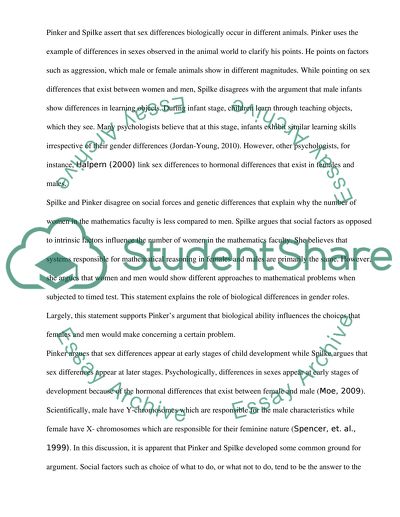Cite this document
(“Gender Differences: Pinker and Spelke Debate Essay”, n.d.)
Retrieved from https://studentshare.org/psychology/1444852-gender-differences
Retrieved from https://studentshare.org/psychology/1444852-gender-differences
(Gender Differences: Pinker and Spelke Debate Essay)
https://studentshare.org/psychology/1444852-gender-differences.
https://studentshare.org/psychology/1444852-gender-differences.
“Gender Differences: Pinker and Spelke Debate Essay”, n.d. https://studentshare.org/psychology/1444852-gender-differences.


